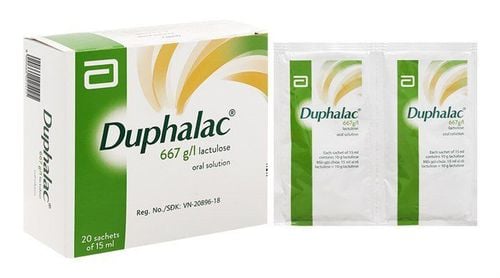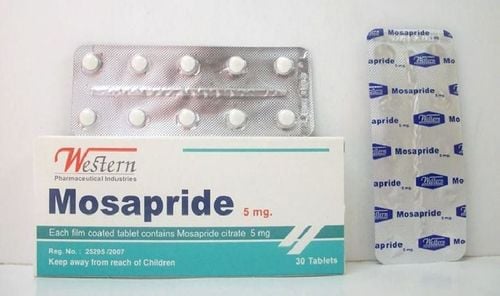This article is professionally consulted by Master of Medicine, Dr. Nguyễn Tung Hoành - Department of Intensive Care - Emergency - Vinmec International General Hospital, Nha Trang.
People with IBS should eat yogurt to replenish healthy bacteria in the gut, which can help alleviate symptoms. However, yogurt is also listed as a food to be cautious about when planning a diet for those with IBS.
1. Yogurt and Irritable Bowel Syndrome (IBS)
In fact, the causes and symptoms of Irritable Bowel Syndrome (IBS) vary from person to person. The exact cause of this condition is still unknown. This means some people may react poorly to yogurt, while others may find relief from symptoms thanks to the probiotics (also known as good bacteria) in yogurt. Therefore, only a doctor can decide whether an IBS patient should eat yogurt or not.
Over the years, many studies have been conducted on the effects of probiotics in people with IBS, but no definitive conclusion has been reached. Specifically:
- In 2011, a clinical trial was conducted on 122 people with IBS. After using probiotics for 4 weeks, 47% of participants experienced significant reductions in IBS symptoms. Another study combined probiotics for 30 people with IBS and found that this mix was more effective than a placebo in improving IBS symptoms, including abdominal pain and bloating.
- On the other hand, a study examining probiotics in the Activia yogurt brand found no benefits for 274 IBS and constipation participants. Two other studies involving probiotics in 73 people with IBS also did not yield positive results.

This is not too surprising since IBS stems from different causes in each individual. Larger trials are still needed before doctors can confidently prescribe probiotics for IBS patients.
2. The best type of yogurt for IBS patients
If you want to try yogurt to alleviate IBS symptoms (provided you ensure that dairy does not worsen your condition), look for yogurt containing probiotics or live and active cultures.
To contain these ingredients, chilled yogurt products must have at least 100 million colony-forming units (CFU) per gram, while frozen products must have at least 10 million CFU per gram at the time of manufacture. These live elements are essential for yogurt thickening, but some yogurts may contain fewer than 1,000 bacteria per gram, which is a relatively small number. Only certain approved yogurt brands meet this standard.

3. FODMAP: Diet for patients with Irritable Bowel Syndrome (IBS)
FODMAP is an acronym for a group of food molecules, including Fermentable, Oligosaccharides, Disaccharides, Monosaccharides, and Polyols. All of these are forms of short-chain carbohydrates that are poorly absorbed in the gut. They are commonly found in modern diets and can cause digestive issues, including Irritable Bowel Syndrome (IBS).
Australian scientists have proven that a low-FODMAP diet can reduce common symptoms for individuals with digestive disorders, particularly those with IBS.
3.1. Foods to avoid
- Garlic and onions;
- Dairy products;
- Foods with high-fructose corn syrup;
- Wheat products;
- Vegetables, such as broccoli and artichokes;
- Certain fruits, like apples, apricots, and avocados;
- Peas and black beans.

3.2. Approved foods
- Dairy-free milk, such as almond milk or hemp milk;
- Feta cheese (made from sheep's milk) and brie (made from cow's milk);
- Fruits like oranges, pineapples, cantaloupe, and blueberries;
- Vegetables such as zucchini, lettuce, cucumber, eggplant, and potatoes
- Proteins like beef, tofu, chicken, and fish;
- Wheat-free bread;

4. Why isn't yogurt included in the FODMAP diet?
Yogurt is often not recommended in the FODMAP diet for two reasons:
- First, yogurt contains fat, which can increase the risk of diarrhea;
- Another reason is that some people with IBS are also lactose intolerant. In such cases, their bodies cannot digest a very common component in dairy products. For these individuals, yogurt can worsen symptoms, including stomach pain, bloating, and heartburn.
If the increase in fat or an allergic reaction to lactose causes IBS symptoms, you should switch to low-fat yogurt or non-dairy and plant-based products. Examples include soy, coconut, or almond yogurt.
5. Conclusion
Regarding whether people with Irritable Bowel Syndrome (IBS) should eat yogurt, doctors say the answer depends on each individual case.
Not all IBS patients experience the same symptoms, so it is advisable to check the body's reaction to yogurt before adding it to the diet for IBS patients. All types of yogurt should be avoided if they worsen the symptoms. However, if you feel fine after eating yogurt, you can continue to enjoy it.

Plain and low-fat yogurt is a good choice as it doesn't contain too much sugar or fat. Additionally, beneficial gut bacteria can be obtained from plant-based yogurts, fermented milk drinks made from kefir grains, fortified foods, and supplements.
You should consult your doctor if you're unsure whether IBS patients should eat yogurt. Ignoring professional advice might worsen the symptoms. Doctors and nutritionists can recommend the diet for IBS patients that fits your lifestyle and preferences.
To arrange an appointment, please call HOTLINE or make your reservation directly HERE. You may also download the MyVinmec app to schedule appointments faster and manage your reservations more conveniently.
Reference source: healthline.com














